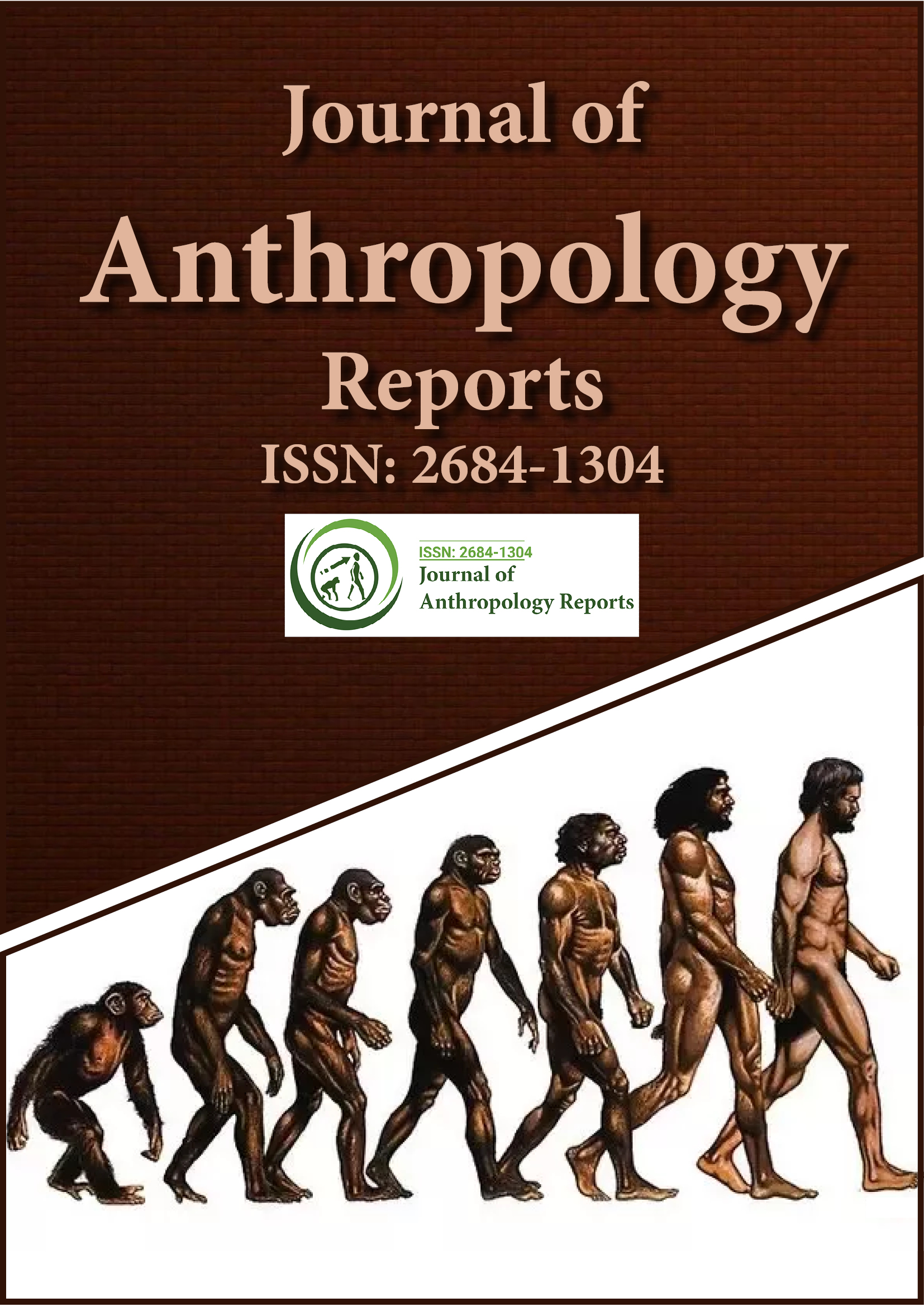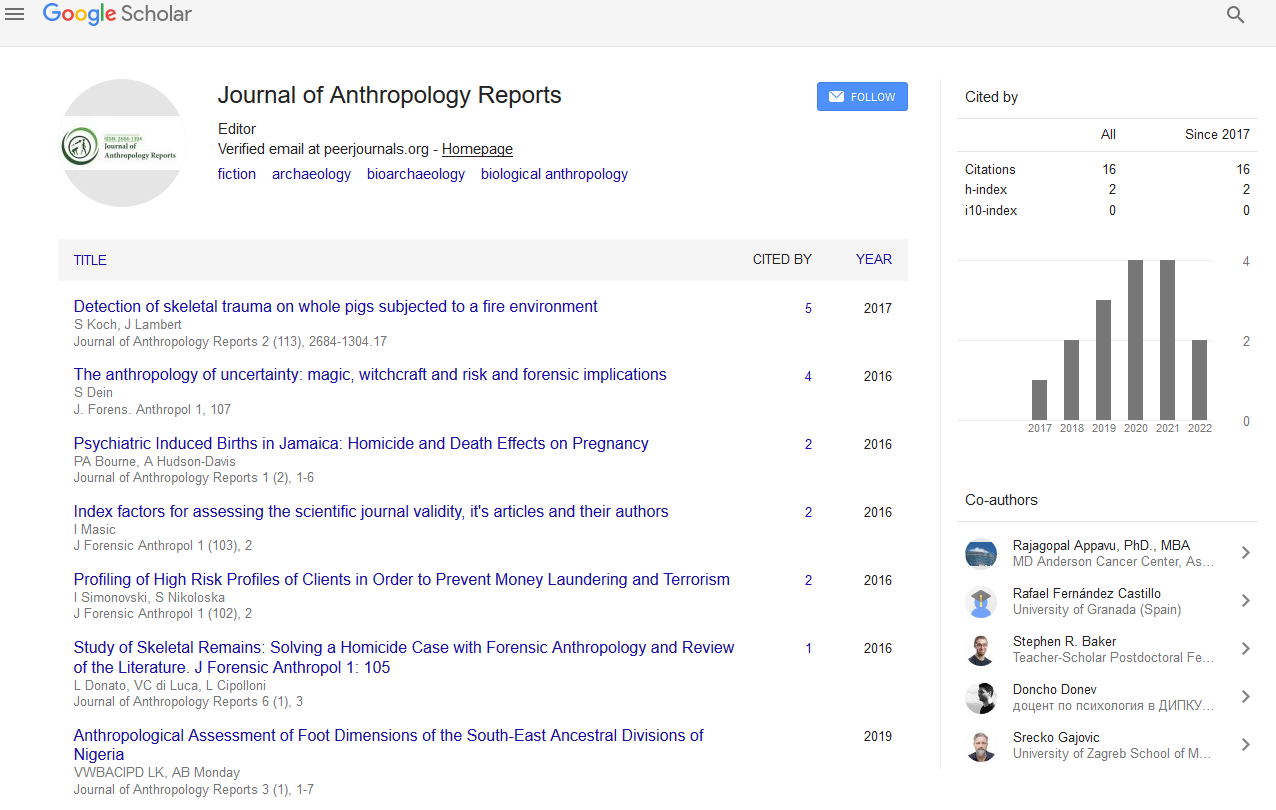Indexed In
- RefSeek
- Hamdard University
- EBSCO A-Z
Useful Links
Share This Page
Journal Flyer

Open Access Journals
- Agri and Aquaculture
- Biochemistry
- Bioinformatics & Systems Biology
- Business & Management
- Chemistry
- Clinical Sciences
- Engineering
- Food & Nutrition
- General Science
- Genetics & Molecular Biology
- Immunology & Microbiology
- Medical Sciences
- Neuroscience & Psychology
- Nursing & Health Care
- Pharmaceutical Sciences
Short Communication - (2025) Volume 8, Issue 1
Intergenerational Knowledge Transfer in Oral Tradition-Based Communities
Mei Zhang*Received: 24-Feb-2025, Manuscript No. JFA-25-29405; Editor assigned: 26-Feb-2025, Pre QC No. JFA-25-29405 (PQ); Reviewed: 12-Mar-2025, QC No. JFA-25-29405; Revised: 19-Mar-2025, Manuscript No. JFA-25-29405 (R); Published: 26-Mar-2025, DOI: 10.35248/2684-1304.25.8.212
Description
In communities where written language is absent or plays a limited role, oral tradition serves as the main method for preserving and passing down knowledge. This practice depends heavily on the interaction between generations, where elders share stories, histories, values, skills and customs with younger members. Such transmission is not only a way to conserve information but also a process that shapes identity, social bonds and cultural continuity [1].
Oral knowledge transfer is often carried out through storytelling, songs, chants, proverbs, rituals and other forms of verbal expression [2]. These methods are flexible, allowing the community to adapt the content to new circumstances or audiences while keeping its essential meaning. The stories may contain lessons about behavior, explanations of natural phenomena, genealogies, or records of past events. Through repeated sharing, these narratives become ingrained in the collective memory and are experienced as part of everyday life [3].
The role of elders in this system is central. Their life experiences, wisdom and mastery of language give them authority and respect within the group. They serve as living libraries, responsible for maintaining the accuracy and depth of the knowledge. Their ability to recall and perform these traditions ensures that the culture remains connected to its roots [4]. Younger generations learn by listening, participating, asking questions and eventually taking on the role of storyteller or knowledge keeper themselves [5].
The transmission process is often interactive and communal. It involves more than simply reciting information; it includes teaching appropriate ways of speaking, interpreting meanings and understanding social contexts [6]. Young people learn to appreciate not only the content but also the way knowledge is conveyed, which includes tone, rhythm, timing and gestures. This performative aspect helps reinforce memory and engages listeners emotionally, making the lessons more memorable [7].
Learning through oral means also emphasizes relationships and social roles. Knowledge is not seen as a commodity but as a shared resource that binds the group. The act of passing down stories or songs strengthens ties between elders and youth, reinforcing respect and responsibility [8]. It also defines membership within the community and helps newcomers understand their place in the social structure.
Communities respond in different ways to these challenges. Some create new forums for sharing oral traditions, such as community centers or cultural festivals, where stories and songs are performed publicly. Others use recordings or digital media to preserve and distribute their heritage. While these tools differ from traditional methods, they serve the same purpose: keeping knowledge alive and accessible. Oral traditions also allow for flexibility and creativity [9]. While certain core elements remain stable, storytellers adapt their performances to the occasion, audience and current events. This dynamic quality keeps the tradition relevant and responsive. It also encourages participation, as listeners may contribute, correct, or add their own experiences. In this way, oral knowledge is not static but continuously shaped by the community [10].
Conclusion
Intergenerational knowledge transfer in oral tradition-based communities is a complex and vital process. It ensures that culture, values and skills are passed on through relationships and shared experiences. Despite challenges, this form of transmission continues to adapt and thrive, supporting identity and cohesion across time. The living nature of oral traditions connects past, present and future in ways that enrich both the communities involved and the broader understanding of human culture. Languages may decline in use and elders may pass away without finding successors. These shifts can disrupt the continuity of cultural knowledge and threaten the survival of certain traditions.
References
- Sibarani R, Fachry ME. The role of Tamiang's local wisdom in decreasing postpartum depression: A linguistic anthropology study. Enfermeria Clinica. 2020;30:491-493.
- Cuelenaere L. Aymara forms of walking: A linguistic anthropological reflection on the relation between language and motion. Language Sciences. 2011;33(1):126-137.
- Harvey TS. Cultural issues and linguistic complications in health communication. 2024.
- Meilana L, Fang Q. Local knowledge-based study on the status of horseshoe crabs along the Indonesian coast. Reg Stud Mar Sci. 2020;36:101252.
- Wilson DR. On the common of descent of neuropsychiatry and anthropology. Neurosci Biobehav Rev. 2024;105827.
- Bens J. Affective text trajectories: Toward a linguistic anthropology of critique. J Pragmat. 2021;186:142-150.
- Clifford BN, Rainey V, Eggum ND. Parental postpartum depression and children’s receptive and expressive language during the first six years of life: A systematic review of depression timing, status, and chronicity. Dev Rev. 2024;71:101105.
- O'Leary N, Jairaj C, Molloy EJ, McAuliffe FM, Nixon E, O'Keane V. Antenatal depression and the impact on infant cognitive, language and motor development at six and twelve months postpartum. Early Hum Dev. 2019;134:41-46.
- Qi W, Huang S, Zhao J, Cui X, Wei Z, Cui G, et al. The preventive effect of psychological and psychosocial interventions on postpartum depression: An overview of systematic reviews. J Psychiatr Res. 2024; 182:21-33.
- Omar M, Levkovich I. Exploring the efficacy and potential of large language models for depression: A systematic review. J Affect Disord. 2024; 371:234-244.
Citation: Zhang M (2025). Intergenerational Knowledge Transfer in Oral Tradition-Based Communities. J Anthropology Rep. 8:212.
Copyright: © 2025 Zhang M. This is an open-access article distributed under the terms of the Creative Commons Attribution License, which permits unrestricted use, distribution and reproduction in any medium, provided the original author and source are credited

